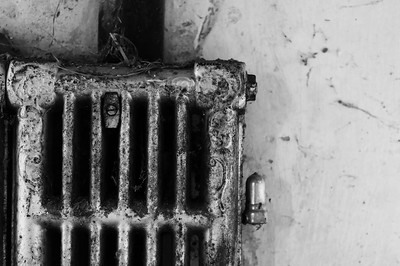Bronx Community College moved to online classes on Wednesday due to lack of heat in many of its buildings. BCC will conduct lab classes only on campus while it addresses heat issues. BCC has actually been without heat since September. Although BCC officials pledged to fix the heat problems weeks ago, the campus remains without heat. Faculty and students are pointing the finger at BCC’s long history of maintenance neglect.
According to the BCC faculty union representative, the lack of heat is the result of a massive backlog of deferred maintenance and chronic underfunding of the maintenance budget. Maintenance neglect has been a longstanding problem at BCC. In 2014, the faculty passed a vote of no confidence in the administration because of dangerous conditions in the campus buildings caused by maintenance neglect. BCC has 34 buildings on campus and at least half are older than 80 years.
2022 is not the first time BCC has struggled to keep its buildings warm in the winter. In 2019, a ruptured pipe flooded the heating plant in Colston Hall, a former dormitory that BCC converted into classroom space. That accident ruined the seven-story building’s heating equipment.
In 2021, the BCC administration sought $32M in funding to address maintenance neglect in the campus heating system. In its request, BCC specifically indicated that its boilers would not last until 2024. Earlier this fall, BCC replaced two boilers, bringing the new equipment online in the first week of November. The replacement boilers stopped working shortly after they were installed. According to BCC officials, the campus will return to in-person operations (with working heat) on November 28.
Maintenance neglect has consequences
An ordinance in New York City requires all buildings there to operate a heating and cooling system between October 1 and May 31 of every year. It is not clear whether the city will apply some type of code enforcement action on the college for its failure to provide heat in its buildings.
Maintenance neglect poses a significant problem for institutions as buildings age. Failure to maintain critical infrastructure has consequences. When those consequences are severe enough to close campus, or render the campus dangerous to occupy, it is incumbent upon the Board of Trustees to take action.
An asset protection clause added to the by-laws would require the president to protect the tangible and intangible assets of the institution as a condition of continued employment. It would also help focus the president’s spending priorities on the campus facilities and the health and safety of people on campus.
In WCC’s case, having to spend more money on taking care of the campus infrastructure might mean that there is less money available to pay for additional Vice Presidents. It may also mean that the Administration’s hotel plans have to wait.
Who knows? Might be a good thing.
Photo Credit: Alex Luyckx , via Flickr






























